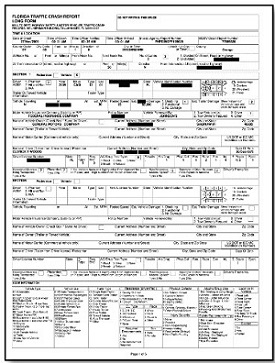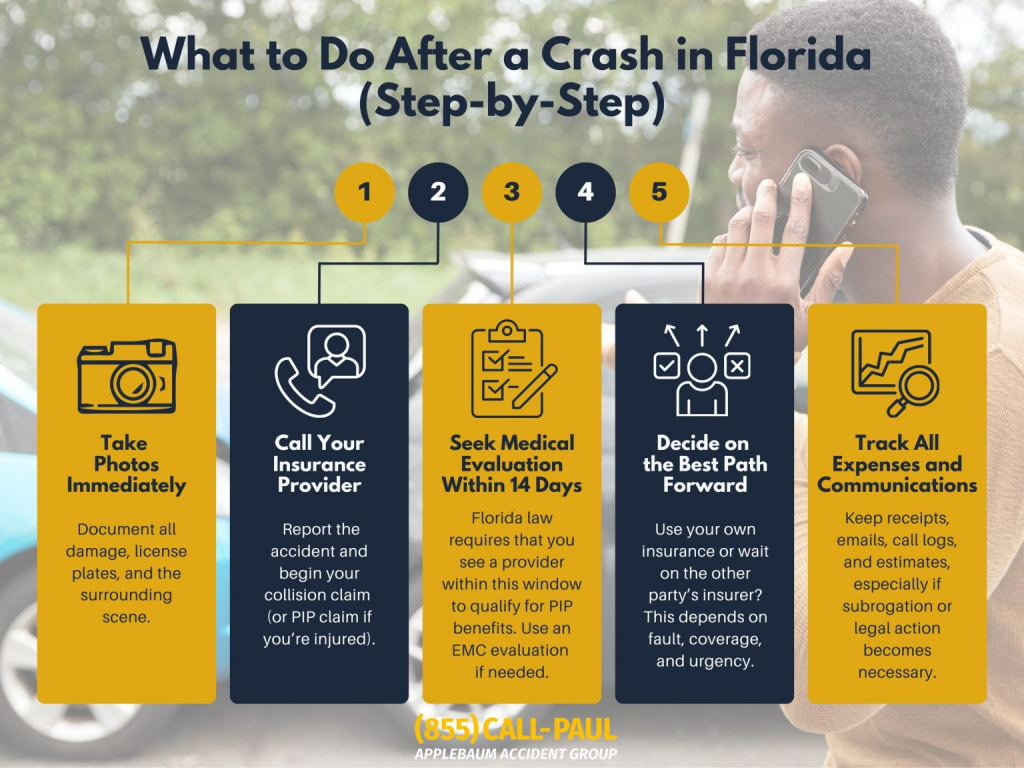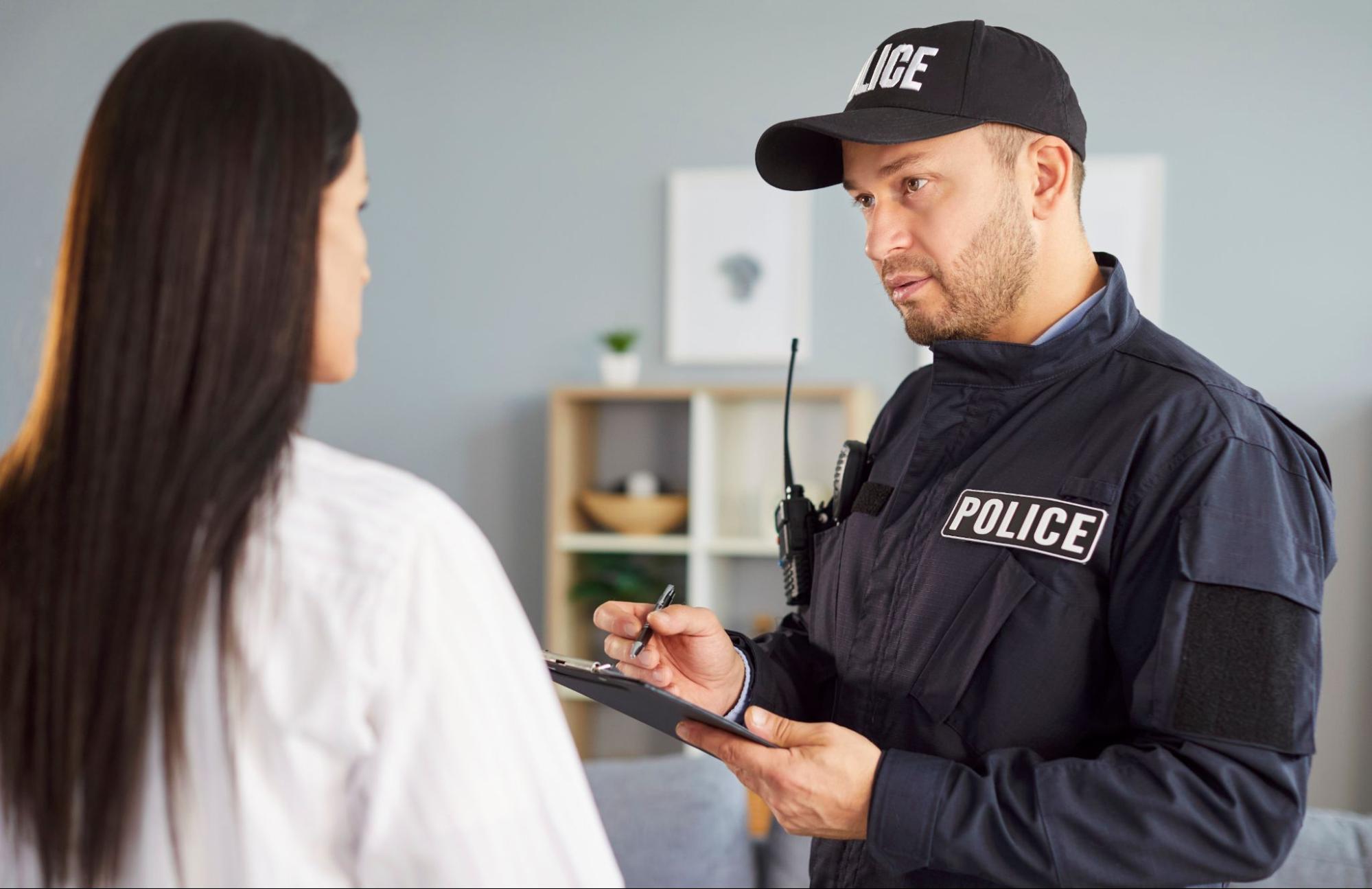To get a Florida car accident police report, request it online via the FLHSMV Crash Portal, by mail, or in person. Reports are available 10 days after the crash and cost $10. You’ll need crash details and ID if applicable.
If you’ve been in a car accident in Florida, one of the first steps toward protecting your rights, and your wallet, is getting a copy of the police report. This isn’t just paperwork; it’s often the starting point for filing an insurance claim, documenting fault, and securing compensation. But figuring out how to get that report can be frustrating, especially when you’re already dealing with medical expenses, vehicle damage, or lost wages.
In this guide, you’ll learn exactly how to request your police report. We’ll walk through:
- When a report is legally required
- How Florida’s 14-day rule impacts your medical benefits
- What to do if law enforcement doesn’t show up.
We’ll also break down how to avoid spam calls, what information you need to request a report, and how to protect yourself legally, so you don’t get caught off guard later.
Let’s get started.
Why a Florida Car Accident Police Report Matters

Photo Source -> FDOT
After a car crash, the police report becomes one of the most powerful tools in your claim process.
It includes the responding officer’s observations, diagrams of the incident location, and statements from everyone involved, especially third-party witnesses. These details help determine who was at fault and when the incident occurred. For insurance companies, that’s not just helpful, it’s often required.
Without this report, your claim may hit a wall. Adjusters rely on it to validate your version of events, confirm damage, and assess eligibility for compensation under Florida’s no-fault insurance rules.
Without One, You Risk Denied Claims
Many accident victims assume that a simple exchange of license plate numbers and insurance cards is enough.
But here’s the problem: if the other driver changes their story later, or outright lies, your chances of getting reimbursed shrink fast.
One real-world case involved a driver who accepted fault at the scene, only to deny it days later. Because there was no police report, the insurer had no basis to hold them accountable, and the claim was denied.
Without objective documentation, your personal injury protection (PIP) benefits, property damage coverage, and even lost wage reimbursements may be out of reach.
When You’re Legally Required to File a Police Report in Florida

Florida Statute §316.066: Mandatory Reporting Scenarios
You are legally required to report a motor vehicle crash in Florida if it involves:
- Any injury or death
- Property damage exceeding $500
- A hit-and-run
- A driver under the influence
- A commercial vehicle
- Any vehicle that must be towed from the scene
Failing to report in these situations can limit your ability to file a personal injury claim and may expose you to criminal penalties if damage or injury is later discovered.
What If Police Don’t Show Up?
In minor crashes, especially in parking lots or with low visible damage, officers may not come to the scene. That doesn’t mean you’re off the hook.
You’re still required to self-report to the Florida Department of Highway Safety and Motor Vehicles (FLHSMV) within 10 days using a “Driver Report of Traffic Crash” form.
This self-report becomes part of the official record and may be the only documentation you have if the other driver disputes what happened. It’s also necessary if you later discover injuries or file an insurance claim.
How to Get Your Police Report Online in Florida
Florida makes it relatively simple to access your car accident report online. Here’s how to do it:
- Visit the FLHSMV Crash Portal
- Enter details like the crash date, incident location, and your name or driver’s license number
- Pay the $10 report fee plus a $2 convenience charge
- Reports are typically available around 10 days after the incident
Make sure the incident has been processed before you order, it’s not immediate.
What You’ll Need
Before you start the request, have this information on hand:
- Your full name or driver’s license number
- The date and location of the crash
- The police report number (if available, it’s helpful but not required)
Be precise. Errors in date or spelling can prevent the system from finding your report.
What If the Report Isn’t Ready Yet?
Processing delays can occur, especially if injuries, commercial vehicles, or multiple parties were involved. These delays may include:
- Internal case reviews
- Officer redactions
- Legal processing by departments
If your report isn’t available after 10 business days, contact the responding agency’s records division or check back through the FLHSMV portal. Be patient, but don’t wait too long, especially if your insurance provider is requesting documentation.
Getting the Report by Mail or In Person
If you prefer traditional methods, or if online access isn’t an option, you can request your Florida car accident police report by mail. Be prepared to wait: mailed reports typically take between 4 to 6 weeks for processing. To avoid delays or rejections, your request must include:
- A completed request form
- The correct mailing address for the Florida Department of Highway Safety and Motor Vehicles
- Payment by check or money order
- A sworn affidavit, if requesting within the first 60 days and you’re not a party listed in the report
While this method may feel outdated, it’s still used by many, especially when hard copies are needed for legal proceedings or court submissions.
In-person pickup: For faster results, you can visit the city, county, or Florida Highway Patrol office that responded to your crash. This is especially helpful if you’re dealing with a disputed fault situation or need the report urgently for an insurance claim.
Bring the following:
- Government-issued ID
- The crash date and incident location
- License plate number or report number (if available)
Call ahead to confirm hours and policies. Some departments only release reports on specific days or require a brief waiting period after the incident occurred.
The Florida 14-Day Rule: What It Means and How It Affects Reports
What Is the 14-Day Rule?
Florida 14-Day Accident Law directly impacts your ability to recover medical expenses after a car crash. According to state law, you must seek treatment within 14 days of the accident to qualify for PIP (Personal Injury Protection) coverage under your auto insurance policy.
While this rule doesn’t affect your ability to request a police report, both timelines are connected.
If you delay getting the report, you may delay treatment, jeopardizing your access to covered care and risking lost wages, out-of-pocket medical bills, and complications with future claims.
Why You Shouldn’t Delay Getting the Report
A delay in requesting your police report can also delay filing a personal injury claim, initiating your insurance claim, or even proving that the incident occurred when and how you say it did.
More than a few Florida drivers have learned this the hard way, discovering an injury days later, only to find they have no supporting documentation and have missed the treatment window. If you’re filing a no-fault insurance claim or pursuing legal action, acting quickly is your best protection.
“Why Am I Getting Cold Calls from Lawyers or Clinics?”
Many drivers are shocked to receive unsolicited calls within days of a crash. Here’s why: police reports are public records. Once your accident is logged, third-party companies, including some referral services, may access and sell that information to medical clinics or legal advertisers.
You might wonder: How did they get my phone number? Often, it’s right there on the report, along with your name and vehicle details.
Here’s how to limit the spam:
- Opt out of marketing databases
- Register with the National Do Not Call Registry
- Use call-blocking apps or settings on your device
If you’re already receiving these calls, do not hire anyone who contacts you first. Ethical professionals wait for you to initiate.
“I Said ‘Sorry’, Did I Admit Fault?”
It’s a natural instinct to apologize after a collision. But saying “sorry” can be misinterpreted as an admission of fault, even if you weren’t responsible.
Instead of apologizing:
- Check for injuries
- Exchange contact and insurance details
- Ask witnesses to stay until police arrive
Let the police report capture the facts. Fault determinations by officers carry significant weight when dealing with insurance companies and personal injury claims.
“The Cop Wouldn’t File a Report, What Now?”
It’s surprisingly common: a minor crash, no visible injuries, and no officer response, or they show up but decline to file a report.
This leaves many Floridians confused and worried about how to proceed. Here’s what you can do:
- File a “Driver Report of Traffic Crash” within 10 days at the FLHSMV portal
- Include:
- Date and time
- Incident location
- Driver’s license numbers
- Vehicle information
- Take your own photos and notes immediately after the incident. Document weather, road conditions, and property damage.
Even when law enforcement won’t assist, you can still protect yourself, just don’t wait.
Other Frequently Asked Questions
How Do I Self-Report If No Officer Writes One?
Answer: If law enforcement doesn’t file a report, you’re still responsible for reporting the crash. Visit the FLHSMV self-reporting portal, complete the “Driver Report of Traffic Crash,” and submit it within 10 days of the incident. This preserves a paper trail and supports your insurance claim or any future legal action.
What’s The Fastest Way To Get A Report For Insurance?
Answer: Online is the quickest. Use the FLHSMV Crash Portal, most reports are available about 10 days after the incident. You’ll need accurate info (driver’s name, location, and date) and a credit card for the fee. Avoid mail unless required; it’s the slowest method.
Do I Need The Other Party’s Insurance To File A Claim?
Answer: No. Under Florida’s no-fault insurance rules, your Personal Injury Protection (PIP) pays first, regardless of who caused the accident. However, to file a liability claim or lawsuit for damages beyond PIP, you may need the other party’s insurance. That information is often included in the crash report.
Can I Correct An Error In The Report?
Answer: Yes, but it’s not always easy. Contact the law enforcement agency that filed the report. You may need to submit a supplemental statement or evidence (like dashcam footage or photos). Keep in mind: officers are not required to amend reports unless the error is factual, not interpretive.
How Do I Get A Report From A County Sheriff Vs Fhp?
Answer: Determine which agency responded. If it was a county sheriff’s office, request the report directly through their records department. If it was the Florida Highway Patrol, use the FLHSMV portal. You can also call the non-emergency line of the department for clarification.
Protect Yourself After the Crash
Invest in a Dashcam (It Could Save Your Case)
Many claims come down to your word versus the other driver’s. Dashcam footage eliminates the guesswork. It can validate that you had your hazard lights on, confirm whether vehicles moved post-crash, and catch a clear view of license plates, road conditions, or even a hit-and-run.
One note of caution: Florida heat can damage dashcams left in parked vehicles. It’s smart to remove your device when not in use and store it in a temperature-safe case to avoid theft or equipment failure.
Don’t Wait for Trouble, Act Now
Delay hurts claims. Here’s what to do within 48 hours:
- Request the police report
- Get medical care, even if symptoms feel minor
- Document everything, photos, witness info, damage, and injuries
- Speak to a referral source, like Applebaum Accident Group, if you’re unsure where to turn. We’ll connect you with attorneys who act quickly to preserve your rights.
You don’t need to navigate this alone. Every delay increases the risk of insurance denials, missed deadlines, or losing out on compensation for medical expenses, lost wages, and emotional distress.
What You’ll Need to Get Your Police Report
Before you request your Florida crash report, whether online, in person, or by mail, have the following ready:
- ✅ Crash date and time
- ✅ Exact location of the car accident
- ✅ Your driver’s license or legal ID
- ✅ A sworn affidavit, if requesting by mail within the first 60 days
- ✅ Patience, even online requests can take up to 10 business days to process
Keeping this checklist in mind can speed up the request process and reduce the chances of having your submission rejected.
You Got the Report. Now What?
If you’ve made it this far, you already know how to request your Florida police report. But getting the document is only the first step. The bigger question is: What are you going to do with it?
Most people struggle to take the next step, especially if they’re injured, unsure about fault, or suddenly dealing with shady phone calls from people they’ve never met. That’s where Applebaum Accident Group comes in.
What We Offer:
- Fast-track access to the right attorneys, not the ones who advertise everywhere, but the ones who win.
- Direct connection to qualified medical providers who know how to treat personal injury patients underFlorida’s PIP system.
- Zero fluff, zero pressure, just guidance from professionals who actually know what you’re dealing with.
What Happens When You Get the Right Help?
- Your insurance claim gets handled properly, with deadlines and documents on lock.
- Your medical bills and treatment are coordinated through doctors who understand how PIP actually works.
- You stop second-guessing whether you’re doing the right thing, and start feeling like someone has your back.
📞 855-225-5728 | Contact Applebaum Accident Group and Request Your Free Consultation Now.





